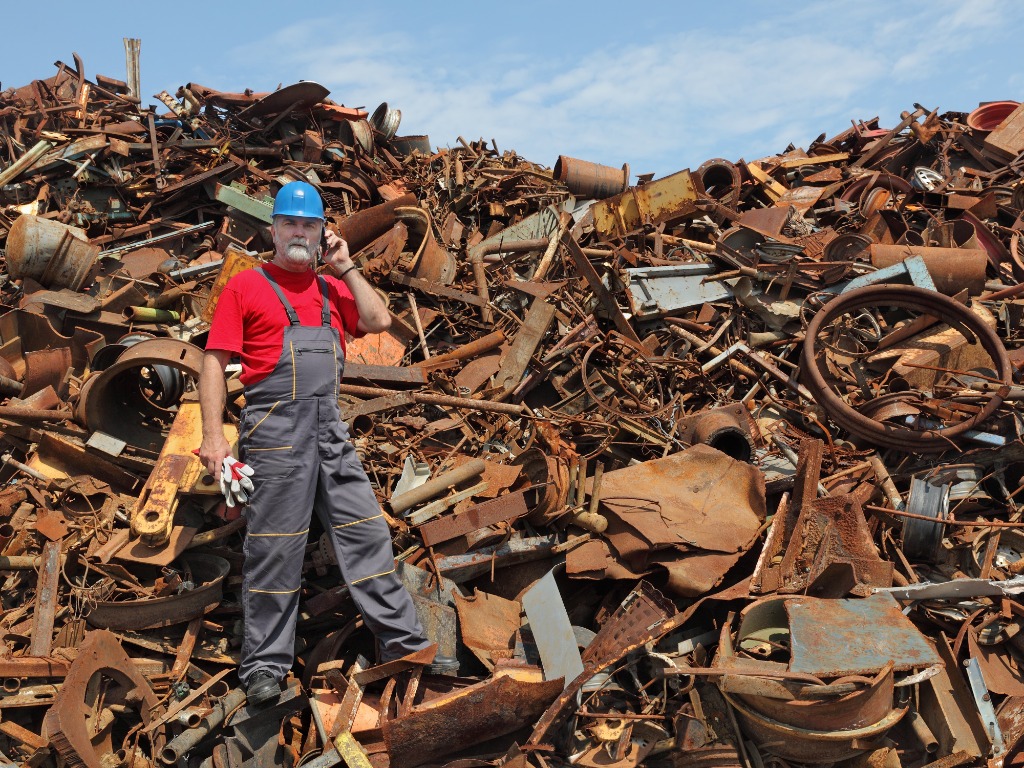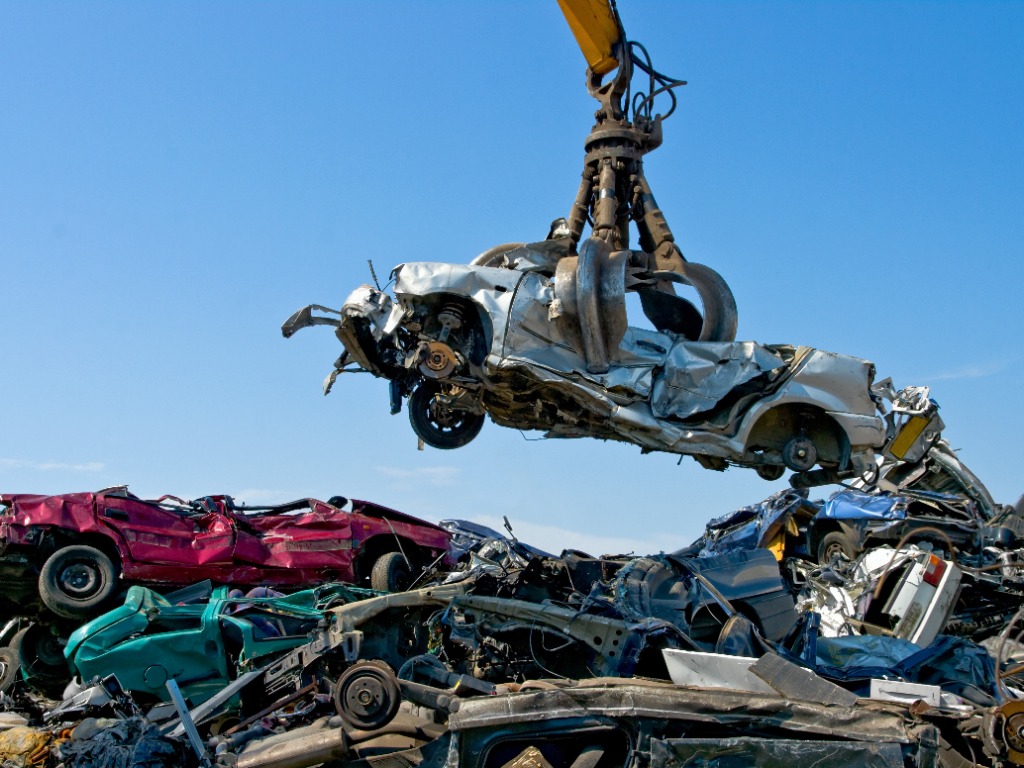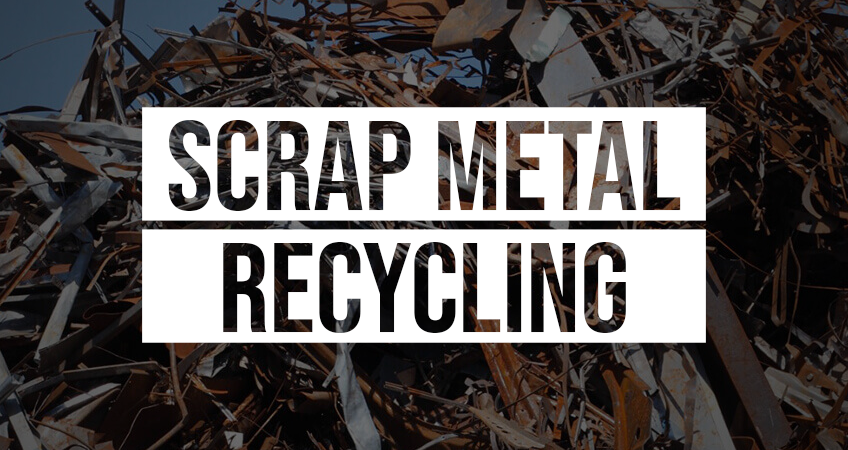In an age where sustainability is at the forefront of global conversations, recycling has become more than just a buzzword; it’s a necessary practice for preserving our planet’s resources. Among the various materials recycled today, metals hold a unique place due to their ability to be recycled indefinitely without degradation of their properties.
In this blog post, we aim to shed light, firstly on what scrap metal is and then revealing where you can find it, where and how it’s recycled and the benefits of doing so.
Read on to learn everything you need to know about recycling scrap metal.
What is scrap metal?

Scrap metal comprises pieces of metal no longer in use or excess to the requirements of manufacturing and industrial operations. It includes a wide range of metals, from common ones like steel and aluminium to precious metals such as gold and silver.
Typically, scrap metal is categorised into two types: ferrous scrap metal and non ferrous scrap metal. Ferrous metal contains iron and is magnetic (such as steel), and non-ferrous metal does not contain iron and is non-magnetic (such as aluminium, copper, and brass). Identifying and separating ferrous and non ferrous waste metal is the first critical step in the recycling process.
Most of the scrap and metal recycling sector transforms ferrous and non-ferrous metal scrap into vital secondary raw material essential for smelting new metals.
Where can you find scrap metals?

You might be surprised by the abundance of valuable scrap metal lying around in common household items. Old appliances, vehicles, construction materials, and electronic gadgets often contain recoverable metals that can be recycled. For instance, an average car holds approximately 1,000 kilograms of steel and a significant amount of non-ferrous metals. Similarly, electronic devices like computers and smartphones are rich sources of precious metals like gold, silver, and copper. Recognising these potential sources is essential for efficient scrap metal recycling.
Items that contain scrap metals include:
- Appliances: Washing machines, dryers, refrigerators, and air conditioning units
- Vehicles: Cars, motorcycles, bicycles, and boats.
- Construction materials: Steel beams, pipes, and aluminium frames.
- Electrical and electronic equipment: Computers, smartphones, tablets, and televisions.
- Household items: Metal furniture, old tools, and lighting fixtures.
- Packaging materials: Aluminium cans, tin containers, and metal lids.
Where can you recycle scrap metal?

The best place to recycle scrap metal is at a dedicated scrap metal recycling facility. Scrap metal dealers are equipped with the necessary tools and machinery to efficiently process various types of metals.
Mackers Metals, for example, is an authorised scrap metal merchant that has been serving the community by offering a sustainable way to dispose of unwanted metals. By choosing a reputable and experienced company, you ensure that your scrap metal is recycled properly, adhering to environmental standards and contributing to a circular economy.
The scrap metal recycling process
The recycling process involves several key steps to transform scrap metal into reusable material:
Sorting
Sorting is the initial step, where metals are separated based on type and grade. Advanced technologies, including magnets and sensors, are used to facilitate accurate separation.
Processing and Melting
After sorting, the scrap metal is processed, usually by shredding or shearing, to reduce its size and make melting more efficient. The processed metal is then melted in large furnaces, a process that requires considerable energy but significantly less than mining and refining raw materials.
Solidifying
Once melted, the metal is purified and then solidified into bars, sheets, or other shapes, ready to be used in manufacturing new products.
Benefits of recycling scrap metal
Recycling scrap metal comes with numerous benefits. It significantly reduces landfill waste, conserves raw materials and natural resources, and saves energy compared to producing metals from ore, which is known as producing virgin metal.
Economically, it can be profitable for individuals and businesses selling scrap to recycling facilities.
On a larger scale, scrap metal recycling supports industries by providing cheaper, sustainable materials, thereby fostering a greener economy.
Conclusion
By understanding what scrap metal is, where it can be found, and how it can be responsibly recycled, individuals and businesses alike can make a profound impact on conserving resources and reducing environmental impact. Recycling scrap metal is a practice that benefits not just the environment but offers tangible rewards for those who participate. Whether you’re an individual with a small amount of household metal waste or a large corporation dealing with industrial scrap, there are opportunities to contribute to sustainability through recycling.
Mackers Metals stands at the forefront of this effort, offering an authorised facility for recycling scrap metal along with extremely competitive prices. We encourage all to be part of this rewarding initiative.
Get in touch with our team at Mackers Metals for a free quote on your scrap metal and contribute to a cleaner, greener planet.


